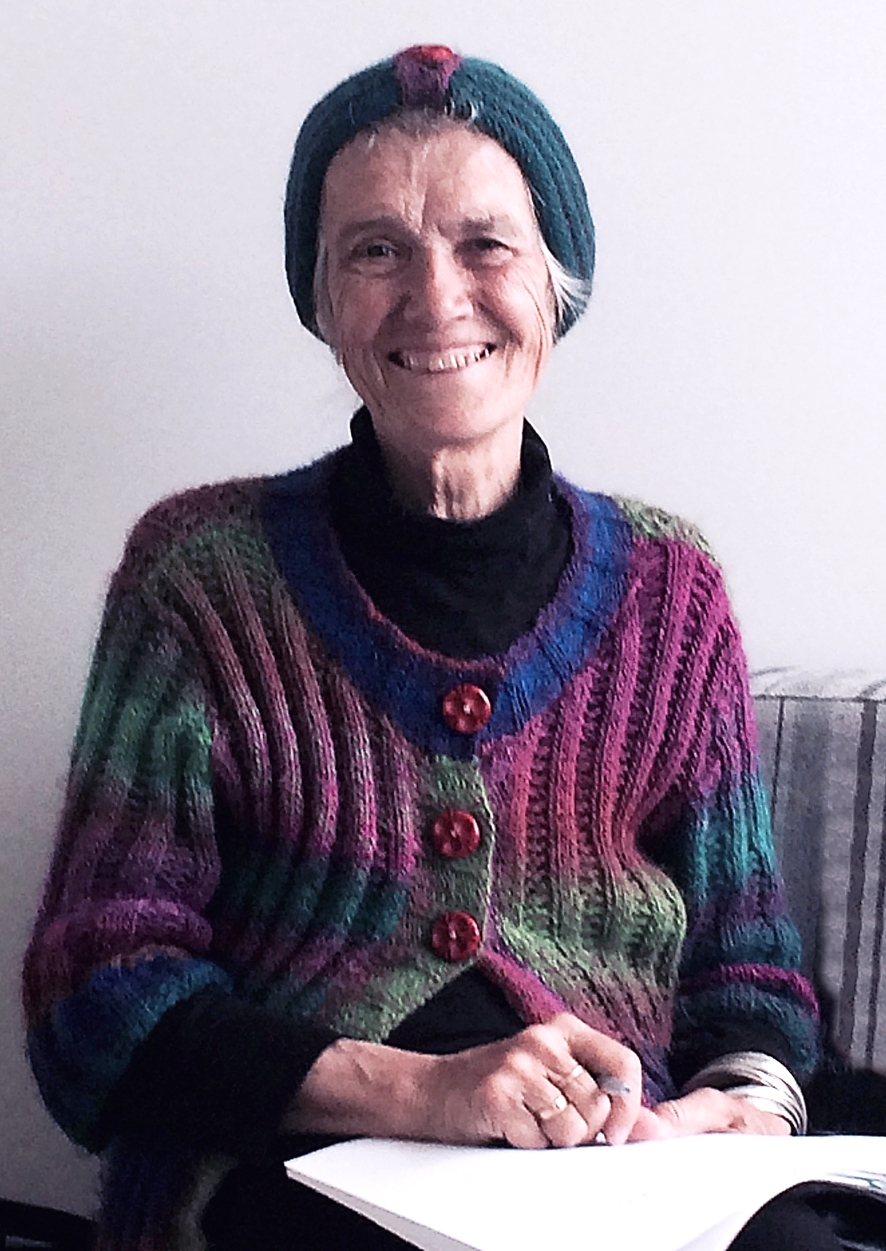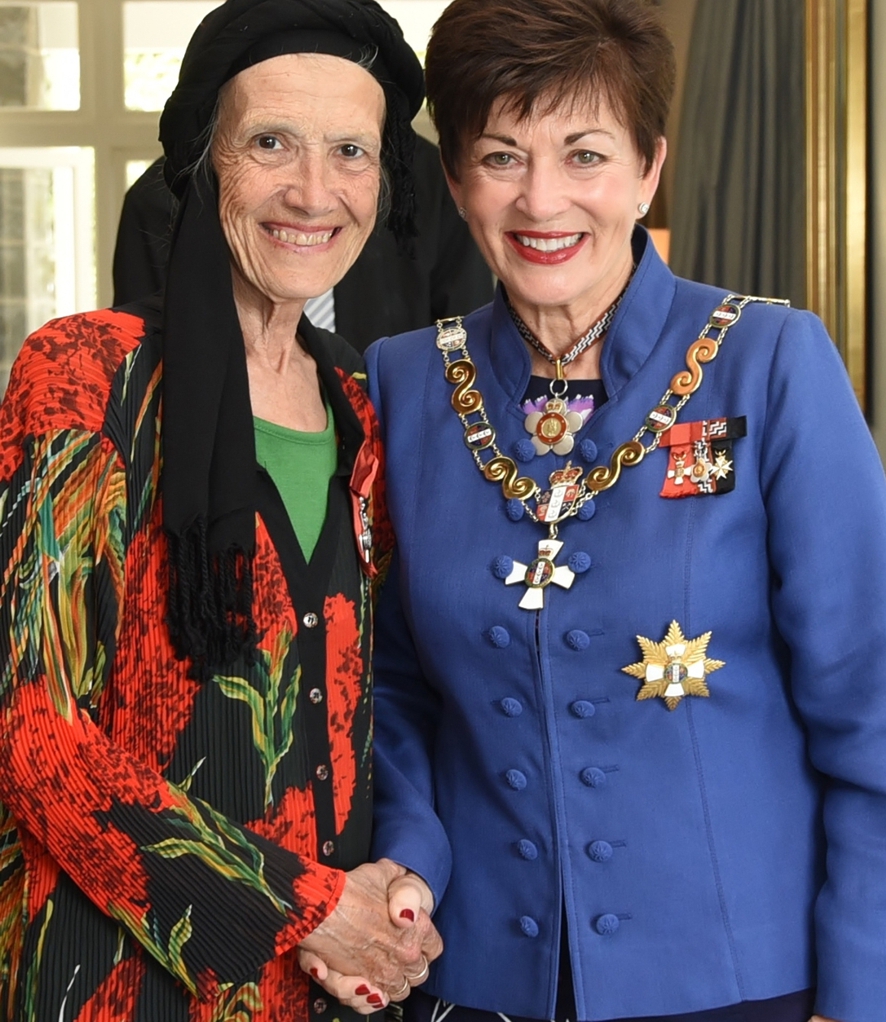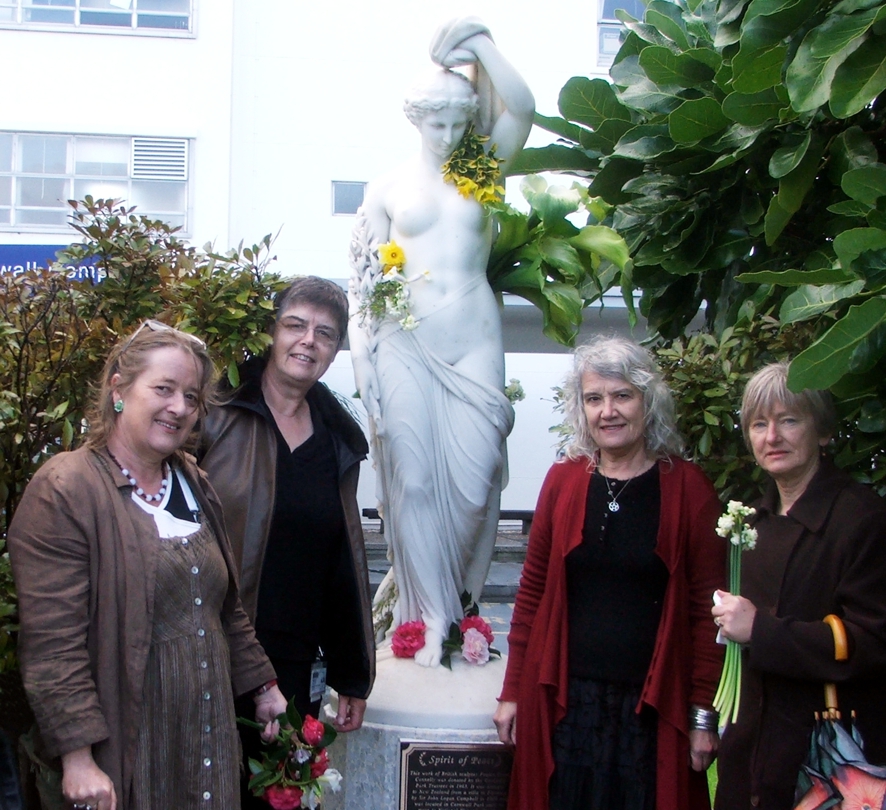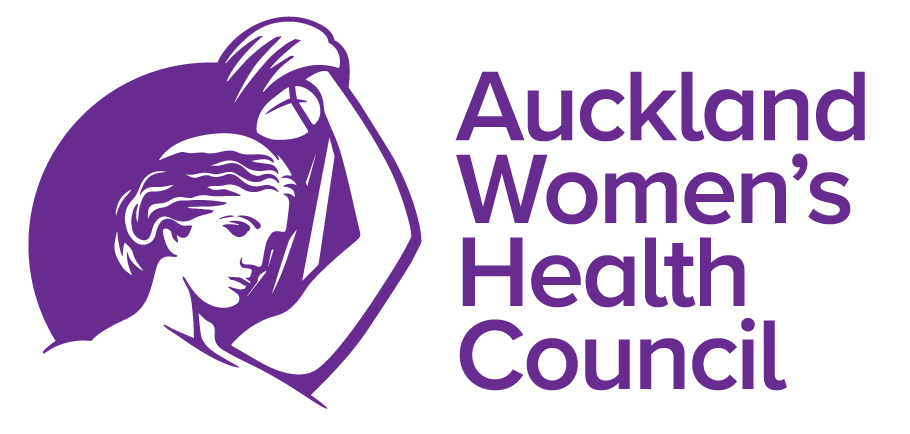Lynda Williams
Lynda’s feminist principles and history of advocating and lobbying for women’s rights over birthing choices called her to be one of the founding members of AWHC. She was involved in several of the working groups set up following the release of Judge Cartwright’s Cervical Cancer Inquiry and was appointed as the first patient advocate at National Women‘s Hospital, fulfilling one of the key recommendations from the inquiry.
In 1995 Lynda took up the role of AWHC’s co-ordinator. This was a role to which she brought transparency, scholarship and rigour. To each executive meeting she would bring a record of the work she had done, the meetings she had attended, and the phone calls and emails she had responded to. Her scholarship and rigour were evident in the monthly newsletter she produced. Lynda stirred our emotions and called us to action though the use of literature, facts and figures showing how and what the situation was. Her concern was evident but not easy to dismiss. That the newsletters were subscribed to by academics and politicians shows how well thought of and useful her writing was. She was sought after by both national and international reporters for the AWHC’s views on health issues.
Lynda was also generous in her commitment to AWHC. In times when we were waiting for the results of another funding grant application, Lynda would literally pay herself by loaning money to the AWHC. She maintained a steadfast belief that AWHC would survive. When she was diagnosed with cancer, Lynda’s commitment to AWHC’s future survival was evident too. She wanted to ensure that she safely passed the mantle on to our new co-ordinator and pushed us to begin this process (sooner rather than later). We recognise that this was not an easy thing for Lynda to do and one of the many things that she had to grieve for.

Lynda always kept us on track as an organisation. She was mindful of the key issues and principles that were our history, present and future, such as the right to informed consent and quality screening programmes. She kept institutions on track and mindful of these principles as well. Her consistent attendance at the Auckland region’s DHB and Health & Disability ethics meetings was noted by the board and committee members. Her attendance and astuteness at these meetings allowed AWHC to stay alert to the changes and potential threats to patients’ rights, and to voice our concerns.
Indeed, AWHC would not have survived had it not been for Lynda. It was through her work and efforts that AWHC was seen as a credible organisation to fund. It was through all the qualities that she had – her persistence, courage and commitment to social justice – that AWHC was and is what it is.
What Lynda also made evident to us was the delight, love and pride she felt for her children and grandchildren. She would bring photos and relate stories to us of their weddings and births. It was for her children and grandchildren that Lynda agreed to accept a Member of the New Zealand Order of Merit honour. As Lynda noted in her blog on the investiture ceremony “It will be something for them all to remember me by.”

Lynda was also deeply spiritual. The beaches and the bush of West Auckland played a hugely important part in her life as did Trounson Kauri Park and the Waipoua Forest. Lynda’s blog telling of a return trip to visit to her favourite kauri trees brought back memories of the times Lynda shared her sacred places with us on AWHC retreats in the earlier days of the organisation. Typical of Lynda, in always bringing her whole self to whatever she was doing, was when she persuaded Canada’s CBC, here filming for a “the fifth estate” programme on the high cost of pharmaceutical drugs in Canada and the establishment of a Canadian “PHARMAC” as a possible solution to the problem, to film her on the beach at Te Henga, her most spiritual home, instead of the visual they had suggested – picking up her meds from the pharmacy.
Resigning after 22 years as AWHC co-ordinator Lynda wrote in her blog “I am not at all sure what lies beyond the door I have just stepped through. I have mixed feelings about it, and my dreams are currently providing proof of my distress over the loss of this aspect of my identity.”

For the next four months what lay beyond that door continued to demonstrate Lynda‘s commitment to women’s health as all encompassing, a passion and an integral part of her lifeblood that was with her to the end. Events that brought her great satisfaction and a sense of completion during that time included the launch of Ron Jones’ book, Doctors in Denial: the forgotten women in the ‘unfortunate experiment’; writing her final submission on the Health and Disability Commissioner’s consultation on research involving adult participants who are unable to provide informed consent to being enrolled in research; and, just two weeks before she died, attending Professor Jo Manning’s inaugural lecture on “Compensation for research related injury in the UK, Australia and New Zealand: a legal and ethical audit”.
In September 2017, we published a tribute Newsletter honouring Lynda’s contribution to not only the AWHC but women’s health. We are grateful to Ron Jones and Jo Manning, and to former Health and Disability Commissioner Ron Paterson, for their contributions to this special edition of the AWHC newsletter. We also thank Sandra Coney and Caroline Young, as well as Maternity Services Consumer Council, where Lynda was also co-ordinator for almost 25 years. There would not be many women’s health organisations of the last three or so decades that Lynda was not involved with – Fertility Action/Women’s Health Action, Maternity Services Consumer Council, Save the Midwives, Maternity Action, Federation of Women’s Health Councils, the Cartwright Collective are just some that come to mind. Lynda’s legacy is huge, and while she would be the first to say that nobody is indispensable, those of us who are left behind are very conscious of the gap she left.

